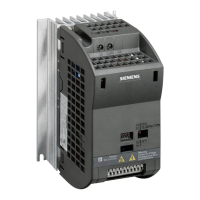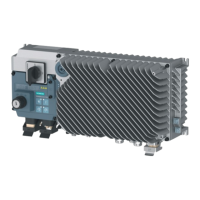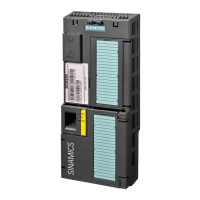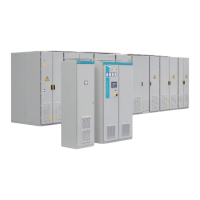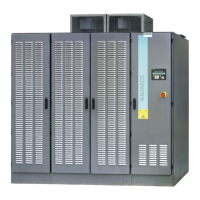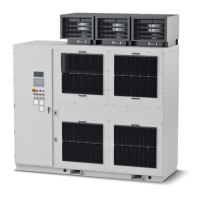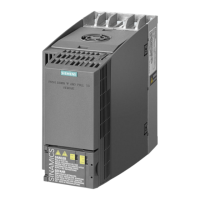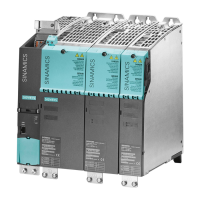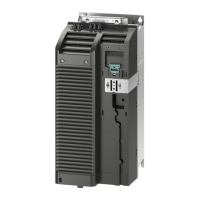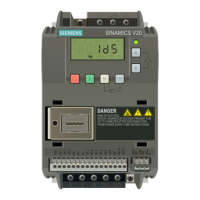Functions
6.7 Motor control
SINAMICS G110D
Operating Instructions, 07/2016, FW V3.63, A5E36768472B AB
121
Additional characteristics of the V/f control
In addition to linear and square-law characteristics, there are the following additional
versions of the V/f control that are suitable for special applications.
Table 6- 32 Further V/f control methods (P1300)
P1300 = 1
Linear V/f characteristic with Flux Current Control (FCC)
Voltage losses across the stator resistance are automatically compensated. This is
particularly useful for small motors since they have a relatively high stator re-
sistance. The prerequisite is that the value of the stator resistance in P350 is pa-
rameterized as accurately as possible.
P1300 = 3
Freely adjustable V/f characteristic
,
which supports the torque behavior of
synchronous motors (SIEMOSYN
motors)
P1300 = 5
P1300 = 6
Linear V/f characteristic for textile applications
where it is important that the motor
speed is kept constant under all circumstances. This setting has the following ef-
fects:
1. When the maximum current limit is reached, the stator voltage is reduced but
not the speed.
2. Slip compensation is locked.
P1300 = 19
V/f control without characteristic.
The interrelationship between the frequency and
voltage is not calculated in the inverter, but is specified by the user. With BICO
technology, P1330 defines the interface via which the voltage setpoint is entered
(e.g. analog input → P1330 = 755).
For more information about this function, see function diagram 6100 in the List Manual.
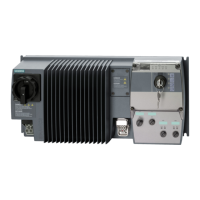
